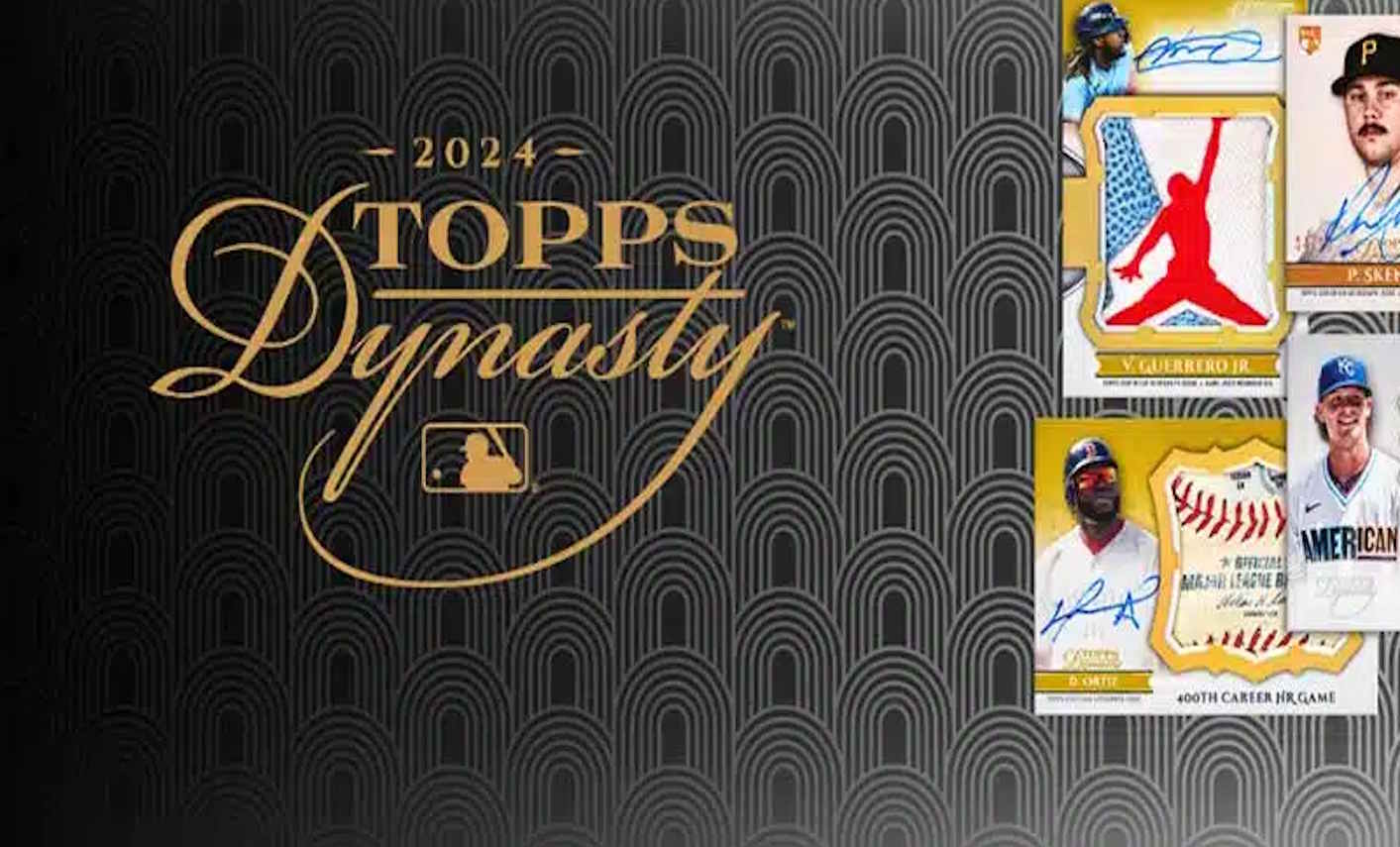

Soccer collectors, we’re in for a seismic shift. The beloved Panini Premier League soccer card releases, including the iconic Prizm, will no longer be.
As of the 2025-26 season, Topps and Fanatics will hold the exclusive rights to the Premier League, just as they do for numerous other major leagues and tournaments worldwide.
This is a game-changer for soccer card collectors. How did this come to pass? What implications does it hold for the soccer card market?
And what does this mean for Panini, who now faces a series of setbacks? We delve into these questions in our comprehensive overview of Topps taking over the English Premier League rights from Panini.
The implications for the soccer card market are significant, with potential changes in card availability, pricing, and collector interest.
How did Topps manage to take over the English Premier League rights from Panini? Let’s delve into the process and understand the industry dynamics that led to this significant shift.
The move was announced on May 8, 2024. Premier League Chief Commercial Officer Will Brass wrote, “We are delighted to welcome Fanatics as the official sticker and trading card licensee of the Premier League from season 2025/26. They bring an outstanding track record and a strong commitment to innovation, helping fans worldwide express their passion for the sports they love.”
David Leiner, Fanatics Collectibles’ president of trading cards, said, “When you look at the IP out there, the Premier League is a property that we see as a huge opportunity—an underexploited opportunity. I think the Premier League was intrigued by not only what Fanatics could do for the collectibles category but also what we’ve been doing with player relationships: Tom Brady, Julio Rodriguez, Ronald Acuña Jr.”
While the announcements stressed the quality of Fanatics’ past offerings, that was probably not the swaying factor here.
Topps’ parent company has generally overpowered its rivals by offering significantly more money. Regarding quality, some issues have been with Topp releases in soccer and elsewhere. We will discuss them later in this article.
Once Fanatics took over the NFL and MLB rights, the licensed cards Panini could produce shrank exponentially.
They had lost the rights to the two main sports in their possession. Panini never had the rights to baseball or hockey. So, what was left? The traditional core of their business had long been soccer. The company first started by producing Italian Serie A cards in the 1960s.
Then, it became a major global juggernaut in 1970, when the company produced its first sticker card for a World Cup tournament. They have continued to make those ever since, facing numerous challenges along the way.
When Panini expanded into the American sports market, they saw it as a strategic move [specific reasons for this strategic move]. However, Topps and Fanatics have been steadily encroaching on their territory in recent years.
The process began in 2015 when Panini lost the rights to the UEFA Champions League to their competitors. Topps, in particular, has capitalized on these rights, producing popular releases like Merlin and Topps Chrome that have endeared them to soccer fans.
Since the Fanatics takeover, the competition in the soccer card market has intensified. In 2022, Topps secured the rights to the UEFA Euro competitions, scheduled for 2024 and 2028. This move completed their takeover of all major European competitions from Fanatics, a significant blow to their competitors, [specific implications of this move].
It also marked a strategic shift for Topps, as they ventured into the realm of international football, a territory they had not previously explored. This included issuing sticker albums for the tournament, a move that directly challenged Panini’s traditional market.
There have been quite a few recent setbacks for Fanatics and Topps, making people question their ability to manufacture cards at the high level they have claimed.
Indeed, in their myriad of lawsuits against Panini (or defending themselves against lawsuits by Panini), Fanatics has asserted that the Italian company has been inept and represents a much higher standard of card manufacturing. However, there were significant issues, such as not stamping “First Card” on special edition 1/1 cards or making up to three copies of 1/1 refractors.
More specifically, regarding soccer cards, there have been some issues with their Euro 2024 sticker release as well. Fans who tried to complete the album were disappointed by the fact that some of the most important players, most notably some of the most visible England stars, were not included.
Big names, like Man City midfielders John Stones and Phil Foden, aren’t accounted for. Similarly, you can’t find Manchester United’s creative force, Marcus Rashford, or Arsenal’s engine, Bukayo Saka, either.
There were other problems, too. The Welsh national team is included in these albums even though they did not qualify. Meanwhile, not all the teams are in their official uniforms. England and Germany, for example, are shown wearing training gear.
The problem is that Topps does not have the right to the images of all the players, uniforms, badges, and the like. That is because Panini has such a long-established influence and reach in the global soccer world.
Therefore, they maintain the rights to imagery related to the national teams of England, Spain, Germany, and Italy. Because so many of these essential images and figures are lacking, many fans who are used to dealing with Panini products that are more complete feel like this is an inferior product.
Predictably, Topps has blamed Panini for these problems. A spokesperson said, “Topps is proud of its first Euro 2024 sticker collection for the upcoming competition. While we are disappointed that a few players are missing, this is due to the tournament’s former sticker partner having blocked certain parts of the collection to the detriment of the fans. Unlike the former sticker partner, we are committed to the fans and believe offering stickers and cards — and a range of current and former players — will excite everyone for the tournament.”
The BBC interviewed Harry, a YouTube celebrity who made his following by posting his sticker albums. He said there are good things about that release, “The graphics are more on-point – the picture is up there – it’s just the finer details that let us down.”
He believed it felt rushed and asked, “Can you imagine getting one of the rarest cards and it isn’t licensed? I would’ve thought the finest details matter for a company as big as Topps, so it is disappointing for myself and other collectors out there.”
Soccer fans are concerned that we will see similar problems with the Premier League releases from Topps. We hope the company will prove them wrong.
The Premier League only came into existence in February 1992. Before that, the top soccer league in England was called the First Division and was run by the English Football Association.
After becoming a massive global force with their sticker album for the 1970 World Cup, held in Mexico, Panini moved into English league football in the late 1970s. The first edition was the release of “Football 1978,” which included the top English and Scottish soccer leagues.
The competition between Topps and Panini has long roots. A company called Merlin splintered off from Panini in 1989. Former Panini employees started it. They created some of the most beautiful English soccer cards ever. Most collectors vastly preferred their offerings to those of Panini.
In 1993, Topps bought Merlin and turned it into Topps Europe, which continues to issue their continental releases today. They entered the Premier League card market in 1994. Indeed, they released the first official cards for the league since Panini was unwilling to pay the high price they were asking and preferred to issue unlicensed cards at that point.
Topps eventually got exclusive rights to Premier League cards and stickers. However, it notably did not make the most of that opportunity. It released some sticker releases. However, it mainly focuses on a game called Match Attax, a TCG based on players’ capabilities as assessed by Topps. The game never really took off, and the cards aren’t worth much. However, Topps still makes the game today.
But in recent years, Panini has had the rights to the Premier League. It won the rights back from Topps in 2019 and made the most of that success. It produced a few products, most notably Prizm. It remains to be seen if Topps can match the popularity of EPL Prizm.
It is hard to believe that Fanatics will stop here. They nearly completely dominate the soccer card world but are not quite there yet. One major piece is missing from their portfolio, and a couple more minor ones.
The World Cup is the biggest soccer tournament on earth and arguably the biggest in the world. Panini maintains the rights to that and has done so since 1970. Knowing Fanatics, there is no question they are eyeing that tournament as a death knell to Panini’s ambitions in the soccer card space and beyond.
Indeed, if they manage to get it, it could provide a psychological and reputational blow to Panini that they will never recover from. Luckily for Panini, they have the right to the World Cup until 2030.
But considering how things are going, only a fool would bet on Panini retaining the right to the tournament beyond that.
As we have seen, Topps products have been problematic recently, especially with their soccer releases. We wouldn’t be surprised to see similar issues as they enter the world of Premier League releases after a long absence.
Nonetheless, after some growing pains, we assume Topps will release good Premier League products. They also have a better marketing knack and more significant budgets than Panini ever had.
As ratings for Premier League games in the United States continue to increase, Fanatics is better placed to capitalize on the increased popularity of that league. That will be a good thing for soccer cards.
They also plan on increasing activity in Europe and connecting it with the hobby in the United States.
Leiner said, “When you look at North America, we’re all about trading cards, but we see stickers — a great on-ramp for young collectors — trading card games, and trading cards, especially in places like Europe, playing well together. We’re at 70 different hobby shows globally, many of which are in Europe. There are dozens of stores [there[, but not hundreds or thousands like you see in the United States. But we’re developing; our business in Europe, it’s big — you’d be surprised if you knew the numbers — but we’re seven minutes into the match. There’s so much ahead of us.”
However, once Fanatics takes over the entire soccer card market, it will likely be a depressing uniformity. While baseball fans are used to having no licensed cards but Topps, soccer fans have long enjoyed the crazier world of collecting this sport.
You have a web of Panini, Topps, and local card and sticker producers who have kept collecting interesting information. The days of that reality are likely numbered.
The hobby’s monopolization is upon us, whether we like it or not. It seems like we are destined for all sales to occur on eBay, all grading to be done by PSA, and all cards to be produced by Fanatics. It is what it is.
The soccer card and sticker world will have to get used to a new and singular company. We hope they improve standards and don’t raise prices because that is generally what monopolies do.
I deep-dove on Fanatics Collect so you don't have to (but should you?)
Panini is launching a WNBA Product at $30,000!?
Topps Chrome 2024-25 Basketball: Honest Review and Notes
Did you know this SECRET about PSA slabs? #sportscard #tcg
5 EASY tips to make more money on eBay sports cards.
I opened a sports card mystery box and found something AWESOME inside
The SAD story of Collectable. What went wrong? (The Downfall Fractional Sports Card Investing)
what was Panini doing? 🙄
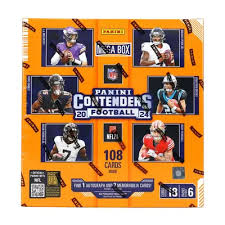
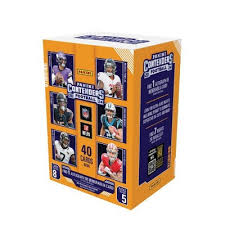
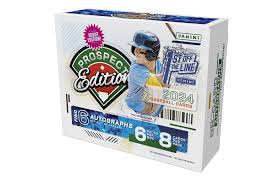
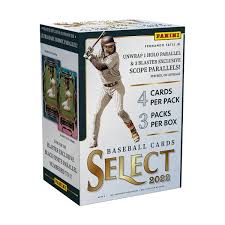
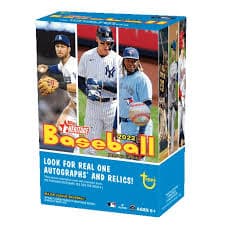
2022 Topps Heritage Baseball Blaster Box Configuration: 7 Packs per Box – 9 Cards per Box. Plus 1 extra pack.
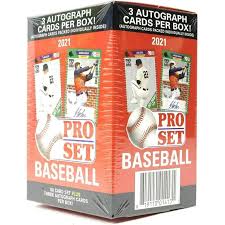
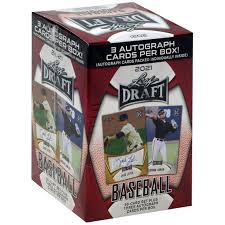
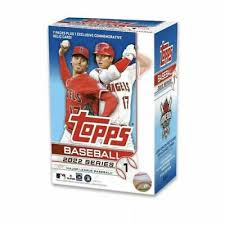


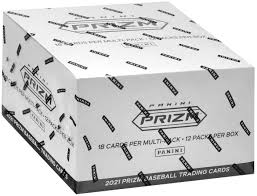



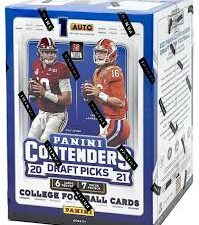
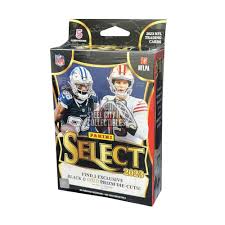
Keep up on breaking Sports Card News, our latest articles, product specials and exclusive content with expert analysis of hobby trends.

© Copyright 2025 - All rights reserved Cardlines.com / Media Techs LLC - Sports Card News, Reviews, Releases and BREAKS - #thehobby.
Important: When you click on links to various merchants on this site and make a purchase, this can result in this site earning a commission. Affiliate programs and affiliations include, but are not limited to, the eBay Partner Network.
I Tested eBay Auction Promotions So You Don’t Have To!
Cardlines June 30, 2025 7:01 pm